Ron Bell
Reviews By Author
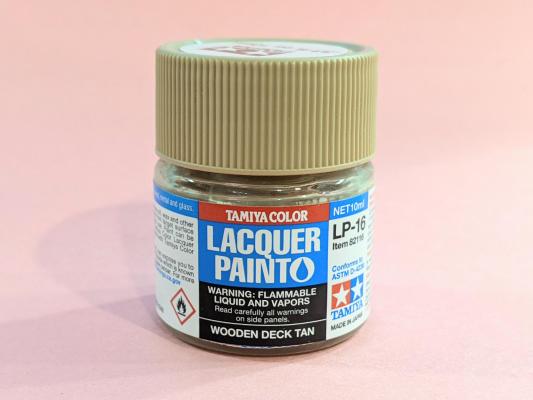
|
Bottled Lacquer PaintPublished:
Tamiya has had lacquer paints in their catalogue for a long time, but until recently, at least in the U.S, they were only available in spray cans, which limited how they could be used and incurred a rather steep price. However, Tamiya has now made their lacquer paints available in .33 fl.oz. bottles in the United States. The color range is limited at the moment, and we can only hope that more colors become available in the future. In addition to this, many products from companies in Asia are in short supply for various reasons, so it may take a while. The paints have to be thinned to be airbrushed and require a lacquer thinner. Tamiya does make it’s own such thinner, but in the case of this review, I used some generic big box store lacquer thinner, which worked fine, but I have… more |
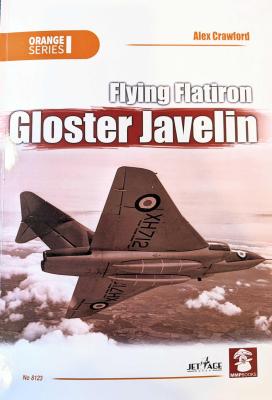
|
Flying Flatiron - Gloster JavelinPublished:
This book is from their Orange Series that specializes in particular aircraft types, in this case the Gloster Javelin. There are 208 pages of mixed text, photos, line drawings, charts and tables of info about the aircraft starting with a rather detailed recounting of the conception and initial design of the aircraft and how that design evolved into the final version. It then goes on to discuss the various armaments it carried, including the air-to-air missiles which also includes a brief run down on how the Firestreak missile was developed. Next is a mark-by-mark description of every variant of the aircraft with many illustrations to show the differences. Included in this chapter is a rather detailed technical description of all the various systems in the aircraft, such as landing gear… more |
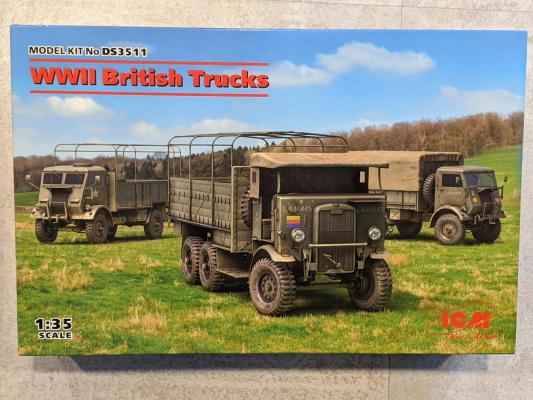
|
World War II British TrucksPublished:
The KitThis one took me by surprise as it was listed as three British trucks. Since it was in 1/35, I assumed that meant it was a kit of a British truck with three configurations to choose from. Imagine my surprise when a rather larger box containing three complete 1/35 British truck kits arrived! They are a 6X6 W.O.T. 8, a W.O.T. 6 and a Leyland Retriever. The parts count is, respectively, 267, 235 and 257. All have GS type bodies, two with the exposed frames for a canvas top and one with the actual top and all have very detailed chassis and engines. The parts are very nicely molded with no flash nor sink or injection pin marks, but there are the usual mold seams to deal with. There are three separate instruction manuals that sometimes have the usual flaw of some… more |
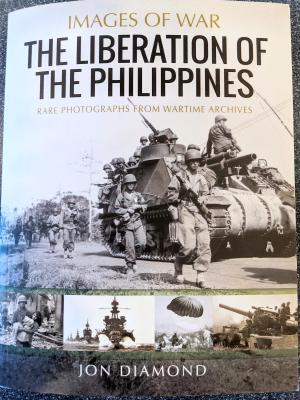
|
The Liberation of the Philippines, Images of WarPublished:
This book from the Images of War series, consists of 239 pages of mixed text, maps and black & white photos of the campaign to recapture the Philippines during WW II. There are seven chapters and an epilogue that cover the background to US involvement in the islands, the Japanese conquest of the islands, the terrain involved , the weapons used, brief bios of the principle commanders, the invasions of Leyte and Luzon and the recapture of Manila and the mopping up invasions in the remaining islands. While the historical text is relatively brief, it is only intended to provide context for the pictures. The photographic coverage of the campaign is extensive with over 250 photos of personnel, weapons and vehicles (which usually include a brief description), and pictures during and after… more |
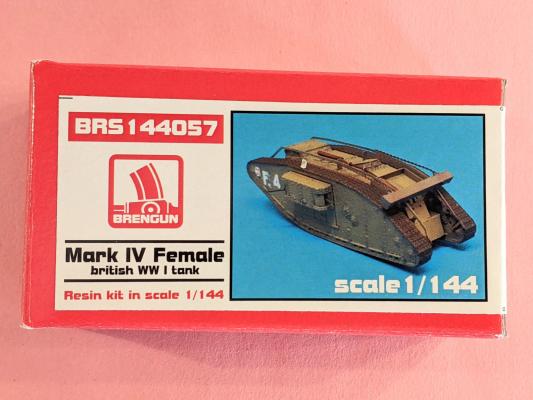
|
Mark IV Female British WW I TankPublished:
The KitThe kit consists of 14 nicely cast resin pieces, one fret of PE parts and a small decal sheet. I found no bubbles, voids or “mushy” casting, however, as can be seen in the photos, there is more resin contained in the casting blocks than in the kit parts. These are quite frankly huge and removing them is the single biggest chore in assembly. I used a Dremel tool saw to cut the largest parts off, then a Dremel sander to remove most of the rest and sandpaper and files to finish off the job. The PE parts are nicely done, but are tiny! A good Opti-visor or microscope is advisable when working with them. The model is solid, so there is no chance to “open it up” and add an interior. AssemblyOnce cleaned up, the parts all went together very well requiring… more |
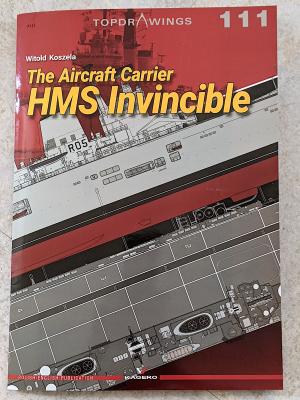
|
The Aircraft Carrier HMS InvinciblePublished:
This is another in Kagero’s series of books that focus on one particular ship, in this case the HMS Invincible. The book consists of one column of text about the ship that is like what you would read on a kit’s instruction sheet and 28 pages of line drawings of just about every aspect of the ship from the island down to the various aircraft that served aboard and the individual defense weapons systems. The drawings vary in scale depending on what they are covering, the main island view being in a smaller scale (1/200) than the views of the defensive weapons (1/100 and 1/50) for example. Also included are two separate back printed 27” X 18” sheets. Three sides of these are line drawings of the entire ship in 1/350 scale and one side is a full color three view print of the ship.… more |
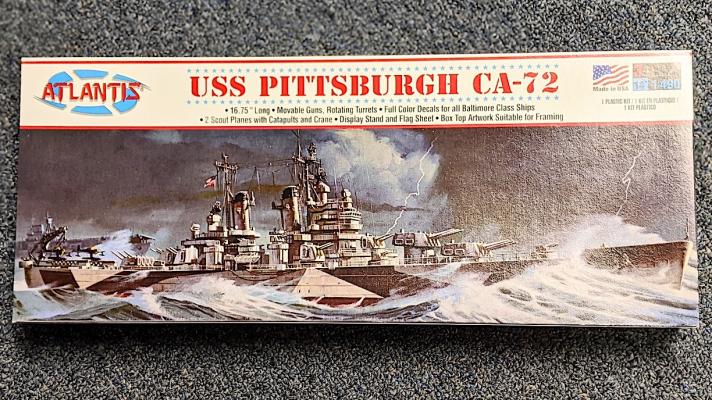
|
USS Pittsburgh CA-72Published:
The KitAtlantis continues to re-release some of the kits a lot of us grew up with. This example is the 1954 Revell U.S.S. Pittsburgh. The kit was re-released many times over the years as the Pittsburgh, the Helena and with new parts updating it with Terrier missies as the Boston and Canberra. This release is in its WW II guise. You get decals for every ship in its class (Baltimore heavy cruisers), but you run short of bow numbers for some, like the one I did, the U.S.S. Toledo. The model is a member of Revell’s “Flat Bottom Navy” and has no hull detail and a flat bottom. Better for scooting across the floor by young budding captains I suppose. The BuildThere are a lot of parts in this kit for a 1954 kit and unfortunately the molds show their age in that… more |
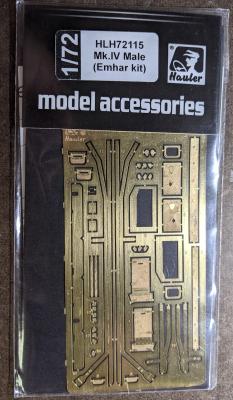
|
Mk.IV Male (Emhar kit)Published:
This set consists of one photoetch fret with parts to detail and/or replace kit parts on Emhar’s 1/72 British Mark IV Male tank. Mainly they are replacement parts for the kit’s un-ditching beam rails, some detail parts for that beam, replacement sponson doors, pistol port covers and parts to enable the modeler to open up the driver’s and commander’s vision ports. There’s also a piece to replace the roof top storage bin. The modeler would benefit from some PE folding experience, especially where the new un-ditching beam rails are concerned, as the folds are long and the pieces quite thin. The instructions for the sponson door parts leave out that you need to cut off the lower part of the kit part and glue it in place as it represents the part of the sponson below the door and… more |
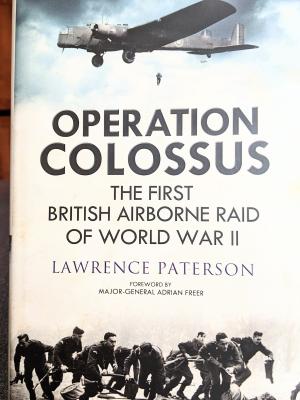
|
Operation Colossus, The First British Airborne Raid of WW IIPublished:
Operation Colossus was an airborne commando raid into Italy early in the war to interdict a particular aqueduct vital to the towns in the ‘heel’ of Italy. The operation is not very well known and this book is a welcome addition to anyone’s WWII library as it fills a void not covered in other publications. Author Lawrence Paterson spends a great deal of time at the beginning of the book relating the story of the creation and training of the UK’s airborne forces, going into some detail as to the people and personalities involved as well as the training and equipment used. If you have any interest in airborne forces, you will find this part very interesting and even if you don’t, it is written in a very readable manner, so it… more |
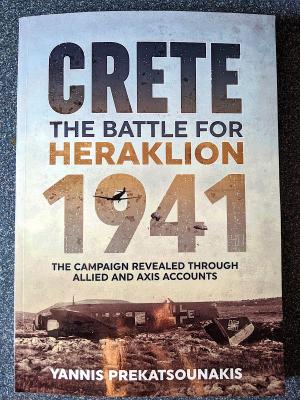
|
Crete, The Battle for Heraklion, 1941Published:
If you are looking to learn about the battle for Crete in WWII, Crete, The Battle for Heraklion, 1941 may not be the book for you to start with. This book deals almost exclusively with the battle for the town and airfield of Heraklion, only one of three landing areas for the German paratroopers on Crete. However, if you are interested in the stories of those on the “sharp end of the stick” in a battle, this book is great as it depends heavily on first person accounts of those who were actually there. While some British, Commonwealth and Germans are included, most of the stories are of the Greeks/Cretans involved, which is good because they are usually overlooked or de-emphasized in most histories which tend to concentrate on the German paratroopers or the British and/or… more |
